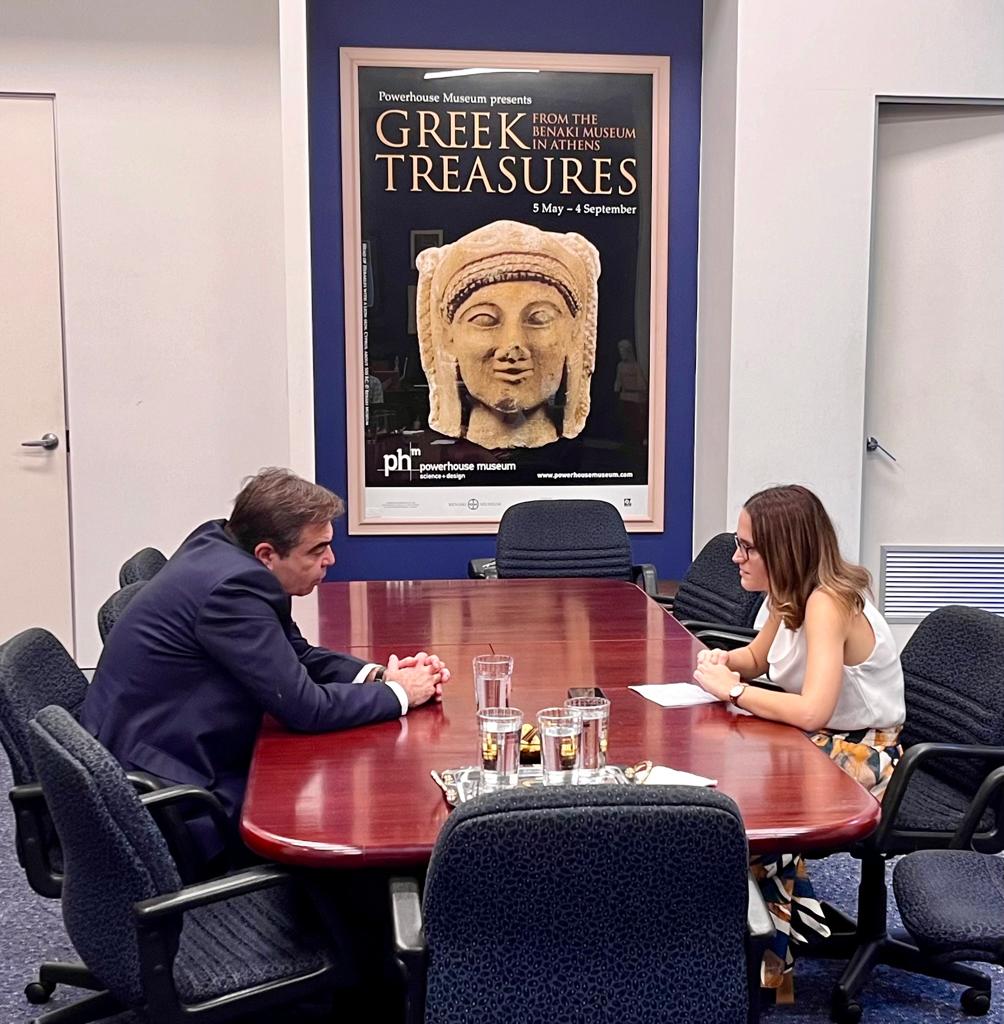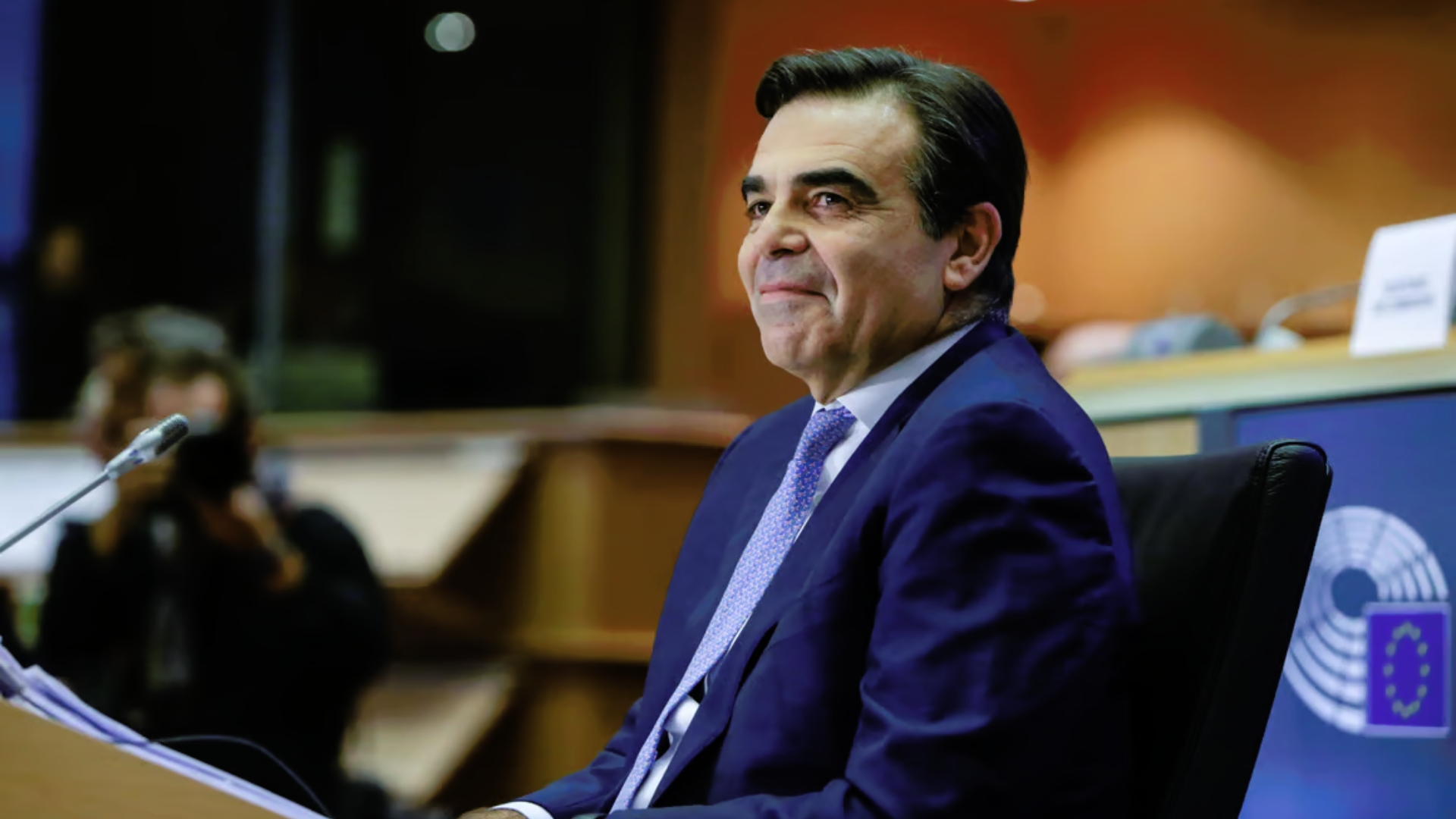During his week-long visit to Australia, the Vice President of the European Commission, Margaritis Schinas, held a number of high-level meetings with business and political leaders and discussed topics ranging from migration to the deadlocked trade deal between Australia and the European Union (EU), and the fight against antisemitism.
Along his travels, the Greek politician also made time to connect with the local Greek communities in Melbourne, Canberra and Sydney to discuss how the diaspora are keeping Hellenism alive Down Under.
In an interview with The Greek Herald, Mr Schinas said he was “impressed” with what he saw throughout his trip, and encouraged the Greek community to continue their contributions to Australia and more broadly, Europe.
“I already knew before coming here that the Greek diaspora in this country is one of the most noticeable, powerful, relevant groups, but I must say I was very much impressed by what I saw,” Mr Schinas said.
“It’s not only a question of numbers. It’s also a question of clout, of gravitas, of leverage. I told them ‘I am proud of you,’ because they are successful, relevant, and very well positioned in Australian society.
“I take this opportunity to ask them to be not only a bridge between Australia and Greece but also Europe and Australia because they are also, as Greeks, they are European, so they carry with them this double-head quality that is crucial to promote this country.”

‘Great news for Greek democracy’:
On the topic of links between Australia and Greece, I asked Mr Schinas for his thoughts on the recent news that Greece would enable postal voting for Greek diaspora in the upcoming European Parliament elections.
The European Commissioner said he thought the announcement was fantastic.
“It’s great news for the quality of the Greek democracy and great news for the Greek diaspora worldwide,” Mr Schinas said.
“The law that, for the first time, allowed diaspora Greeks to vote in elections was important but it was at the same time conditional on many requirements. This is different. There are no requirements. Everybody will be able to vote freely for a postal system and I think this will be a huge boost for the democratic participation of the Hellenes across the world.”
‘Integration is a two-way street’:
As the European Commissioner for Promoting the European Way of Life, Mr Schinas knows all about protecting the best ideals and products of Europe. From dealing with EU policies that pertain to migration, security, public health, education, culture and the youth, Mr Schinas’ portfolio covers it all.
Currently though, one of his main focuses is coordinating the Commission’s work on a common and holistic EU pact on Migration and Asylum. He said Australia’s immigration regime could be influential on any European policies.
“The debate is somehow different between Australia and Europe because here in Australia, you do have a migration policy and you’re now discussing how better to apply it whereas in Europe, we’ve failed for years to have a migration policy,” he explained.
“Finally, after many, many years of trial and error, we are getting there. We are, I think, weeks away from a big European agreement on the EU Pact on Migration and Asylum – of which I was one of the main architects.
“This is a model that combines elements of border management, relations with countries of original transit and solidarity amongst our member states. We are confident that we will get it right.”
As for how established migrant communities such as the Greeks and Italians in Europe and abroad can help promote and support inclusion and integration of new and emerging migrant communities, Mr Schinas said integration was “a two-way street.”
“We have set aside a considerable amount of financial resources to precisely ensure that integration and inclusion of these, let’s call them ‘new Europeans’ happens in a way that suits their prospects in our society but also safeguards our model of society. So it’s a two-track approach,” the European Commissioner said.
“We will do everything we can to provide them opportunities in the job market and education and health, giving them an opportunity to thrive in our environment. But they should also accept, respect and abide by the principles and values that underpin our societies – the role of women, religious tolerance, peaceful coexistence. This is how it goes.”

EU-Australia trade deal deadlock:
To conclude our interview, Mr Schinas also spoke openly about the recent negotiations between Australia and the EU for a free trade deal.
The deal is currently at a standstill with one of the major sticking points being the EU demands for Australia to give up naming rights to products such as feta and prosecco to protect so-called “geographical indicators.”
Mr Schinas said he hopes to see a constructive solution to this trade dilemma soon.
“My presence in this country is precisely an attempt to pick up all the broken glass and try to recompose,” he said.
“For two blocs like Europe and Australia that share so much in common – we are the second highest investor here, the third highest trading partner, we are so close in geopolitics and international politics – it’s mind blowing that we fail to agree on a trade agreement.
“I think that beef and cheese should not big a bigger problem than democracy. So if we agree on democracy and geopolitics, we have to agree on the rest. We will get there.”
